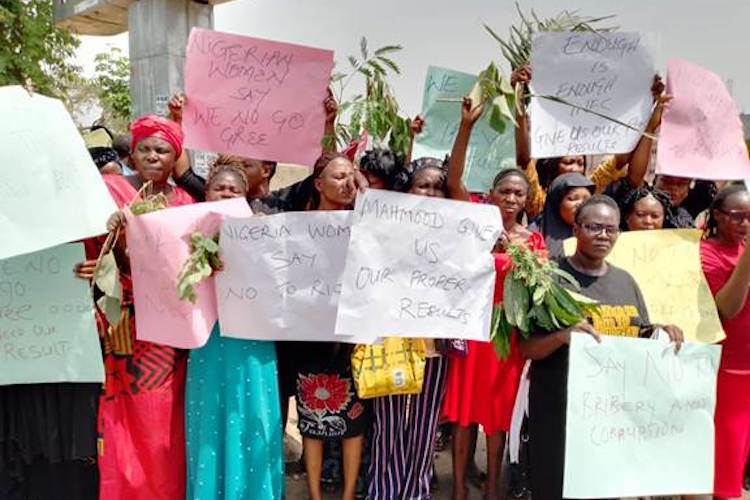By Lisa Vives, Global Information Network
NEW YORK | ABUJA, 2 March 2023 (IDN) — An error-filled election exercise witnessed countrywide and worldwide marred Nigeria’s much-awaited national polls, leaving the victory by the ruling party candidate stained by the stench of corruption and dubious validity.
Held on February 25 using the supposedly secure Bimodal Voter Accreditation System (BVAS), polling stations had uploaded only two-thirds of the 36 states reporting results by February 28 evening, angering those who had waited hours on line to cast their vote.
Prior to election day, the head of Voter Education and Publicity dismissed fears that some politicians were making frantic efforts to hack into the commission’s server before voting took place. The official from the Independent National Electoral Commission (INEC) had been speaking at a two day workshop on voter education, organized by the Transition Monitoring Group (TMG) and USAID.
Later, a TMG observer reportedly observed “over-voting”, while another in Ebonyi Central reported seeing “8 thugs shooting sporadically, snatching all electoral materials and zooming off, using AK guns. A third observer confirmed that the BVAS failed to prevent multiple voting.
The outcome of the election had been predicted by media analysts who designated Bola Tinubu, 70, from the outgoing president’s party, the winner. Second place was expected to be Atiku Abubakar, 76, a former vice president making his sixth run for the job.
But the predictions were upended by a surprise third-party candidate, Peter Obi, a two-time former governor and businessman, who energized Nigerian youth among others hoping for a clean election and an end to massive corruption.
Obi of the little known Labor Party picked up scores of voters but came in behind Tinubu, with 6,101,533 votes to Tinubu’s 8,794,726 votes and Atiku Abubakar’s 6,984,520 votes. Some 34,698 votes were rejected and 36,745 were cancelled.
Obi’s refrain—”It’s time to take your country back”—had brought hope to many. Was it now dashed?
With numerous allegations of voter suppression and intimidation, as well as outright rigging in parts of the country, there have been calls from the two major opposition parties to cancel the election and rerun, while the chairmen of the People’s Democratic Party and the Labor Party are calling on the head of the government’s electoral commission to resign.
Similarly, in a televised address, former president Olusegun Obasanjo urged the outgoing president, Muhammadu Buhari to step down to avert looming danger. INEC officials, he claimed, had manipulated and doctored the results.
“At this stage, we do not need wittingly or unwittingly to set this country on fire with the greed, irresponsibility and unpatriotic act of those who allegedly gave money to INEC officials for perversion and those who collected the blood money,” he declared.
“Let me appeal to the Chairman of INEC, if his hands are clean, to save Nigeria from the looming danger and disaster which is just waiting to happen.”
Senior officials close to Tinubu, say they are confident of victory and see “no pathway” for Obi to take power.
Some results continue to surprise, however, such as Obi’s victory in Lagos, Nigeria’s largest city and commercial powerhouse. Officials announced on February 28 that Obi had also won in Abuja.
Experts warn that the problems with the count could lead to violence.
Meanwhile, Prof. Abiodun Adeniyi, an expert in politics and communication at Baze University, Abuja, reflected how politics is very much like a business in the minds of many actors. “It’s not about serving the people, it is about serving the self. So you see a very vociferous campaign and a great difficulty to accept defeat.” [InDepthNews]
Image: Women protesting electoral corruption in Abuja. Source: Global Information Network
IDN is the flagship agency of the Non-profit International Press Syndicate.
Visit us on Facebook and Twitter.
We believe in the free flow of information. Republish our articles for free, online or in print, under Creative Commons Attribution 4.0 International, except for articles that are republished with permission.

